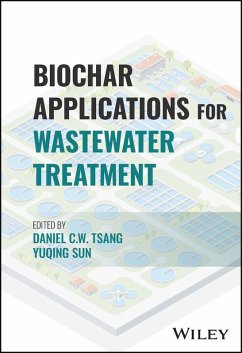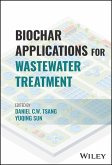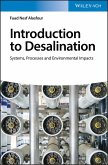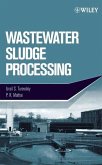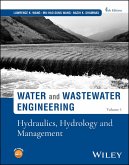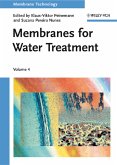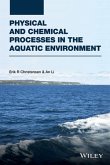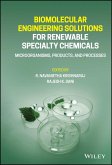BIOCHAR APPLICATIONS FOR WASTEWATER TREATMENT
Comprehensive guide to biochar technology as a novel, cost-effective, and environmentally friendly solution for the treatment of wastewater
Biochar Applications for Wastewater Treatment summarizes recent research development on biochar production and emerging applications with a focus on the value-added utilization of biochar technology in wastewater treatment, succinctly summarizing different technologies for biochar production and characterization with an emphasis on feedstock selection and pre-/post- treatment. The text discusses the mechanisms of biochar's various roles in different functions of wastewater treatment and includes the latest research advances in manufacturing optimization and improvements to update the carbonaceous materials with desirable environmental functionalities.
Discussion and case studies are incorporated in treating municipal wastewater, industrial wastewater, agricultural wastewater, and stormwater to illustrate and emphasize the promising prospects of biochar technology in the treatment of various wastewater in actual utilization. Perspectives and future research directions of the emerging biochar technology in wastewater treatment are presented to provide insights for the readers and researchers in biochar application in wastewater treatment.
Sample topics covered in Biochar Applications for Wastewater Treatment include:
Biochar Applications for Wastewater Treatment is an essential resource for professionals in environmental engineering/sciences, water and waste management, and sustainable environmental development looking for a comprehensive overview of the subject. The text is also valuable for academics interested in wastewater treatment technologies using biochar as a carbon-negative alternative to conventional materials.
Comprehensive guide to biochar technology as a novel, cost-effective, and environmentally friendly solution for the treatment of wastewater
Biochar Applications for Wastewater Treatment summarizes recent research development on biochar production and emerging applications with a focus on the value-added utilization of biochar technology in wastewater treatment, succinctly summarizing different technologies for biochar production and characterization with an emphasis on feedstock selection and pre-/post- treatment. The text discusses the mechanisms of biochar's various roles in different functions of wastewater treatment and includes the latest research advances in manufacturing optimization and improvements to update the carbonaceous materials with desirable environmental functionalities.
Discussion and case studies are incorporated in treating municipal wastewater, industrial wastewater, agricultural wastewater, and stormwater to illustrate and emphasize the promising prospects of biochar technology in the treatment of various wastewater in actual utilization. Perspectives and future research directions of the emerging biochar technology in wastewater treatment are presented to provide insights for the readers and researchers in biochar application in wastewater treatment.
Sample topics covered in Biochar Applications for Wastewater Treatment include:
- Different technologies for biochar production and characterization
- Adsorption, biofiltration, anaerobic degradation, sludge dewatering and composting, nutrient recovery, advanced oxidation process, and odor control
- Removal of pharmaceuticals, personal care products, and emerging contaminants
- Fate and transport in the environment, and life cycle assessment
Biochar Applications for Wastewater Treatment is an essential resource for professionals in environmental engineering/sciences, water and waste management, and sustainable environmental development looking for a comprehensive overview of the subject. The text is also valuable for academics interested in wastewater treatment technologies using biochar as a carbon-negative alternative to conventional materials.
Dieser Download kann aus rechtlichen Gründen nur mit Rechnungsadresse in D ausgeliefert werden.

